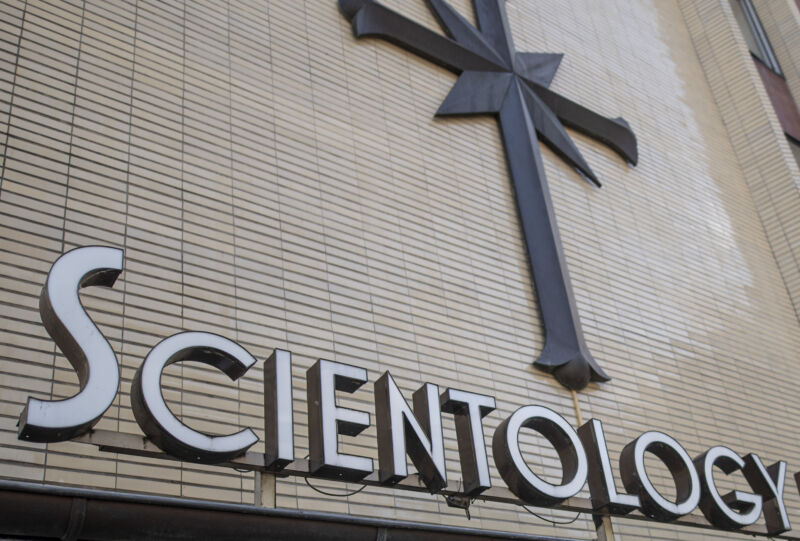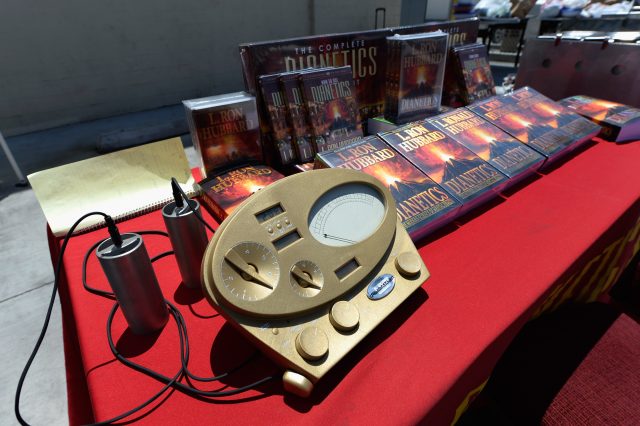
The right-to-repair movement has had its share of adversaries. From Big Tech to politicians and individuals who don’t think product repairability should be government-mandated, it’s been a tedious battle for a movement that has seen major wins lately. One of the most recent wins came from Apple, a former DIY repair combatant, supporting repairability legislation. But taking Apple’s place is a new entity looking to limit right-to-repair legislation: Scientologists.
Today, 404 Media reported on a letter sent on August 10 to the US Copyright Office by Ryland Hawkins of Author Services Inc. The company, its website and letterhead say, represents the “literary, theatrical, and musical works of L. Ron Hubbard, the late founder of Scientology. Author Services, according to records archived via the WayBackMachine, is owned by the Chuch of Spiritual Technology, which describes itself as a church within Scientology.
The letter addresses Section 1201 of the Digital Millennium Copyright Act (DMCA), which “makes it unlawful to circumvent technological measures used to prevent unauthorized access to copyrighted works.” The Scientology group’s letter seeks to alter exemptions granted for self-repairing some consumer electronics, like video game consoles, laptops, home appliances, and farming tractors.
Author Services’ letter argues that while that exemption works for the “many consumer devices” that include “unilateral ‘shrink-wrap’ licenses governing the terms of use of the software,” they shouldn’t apply to devices that “can only be purchased and used by someone who possess [sic] particular qualifications or has been specifically trained in the use of the device.” With those products, the license agreement is “negotiated and agreed to in advance” of purchase and may include restrictions that are critical to “safe and proper” device usage.
The Scientology-tied group seeks an amendment to the exemption so that it doesn’t apply to software-powered devices that can only be purchased by someone with particular qualifications or training or that use software “governed by a license agreement negotiated and executed” before purchase.
Before we get into what horse the Church of Scientology could have in the right-to-repair race, let’s consider whether its amendment is extreme.
“It’s a totally unreasonable proposal,” Elizabeth Chamberlain, director of sustainability at iFixit, told Ars Technica. “I can imagine manufacturers using the presence of a ‘quick start’ guide for a product as evidence that their consumers are ‘specially trained in use of the device’ and thus denying broad access to repair.”
She noted that such an amendment would render the proposed exemptions for commercial and industrial equipment from right-to-repair activists “toothless.”
Chamberlain added:
Tying repair material access to training is dangerous because it helps manufacturers maintain their walled gardens of repair. When manufacturers can require specific training, they can charge what they want for that training, gatekeep who is allowed access to it, and shut it down to boost business for their in-house technicians. Consumers see the result of this kind of limitation in less access to repair and higher prices.
Why would Scientologists care about device repairability?
As to why a Scientology-owned group would care about such a matter, 404 Media suggested that it could have to do with Scientology E-meters, or electropsychometers. The Church of Scientology describes the machines as an “electronic instrument that measures mental state and change of state in individuals and assists the precision and speed of auditing” and that only a Scientology minister or training minister should use. 404 Media noted that some people collect the devices and, oddly enough, you can find E-Meters sold on eBay.

As noted in the letter sent to the Copyright Office, Author Services fears the 1201 exemptions could jeopardize proper device usage, which it believes is “essential for the device manufacture to maintain its reputation and goodwill.”
If this letter is indeed about E-meters, the only electronic device Scientology is readily connected to, then Author Services may be concerned about how the Church of Scientology’s reputation could be impacted if E-Meters are dissected.
“My hunch is that the Scientologists think granting the hacking community permission to dig into their E-Meter software will expose the whole operation as snake oil. The request is like so many other anti-Right to Repair arguments: Manufacturers are afraid that access to repair materials will expose some of their other dirty secrets,” Chamberlain said.
Nathan Proctor, US Public Interest Research Group’s senior director, told 404 Media that Author Services’ requested DMCA changes would prevent people from repairing products with end-user license agreements (EULAs). E-Meters have EULAs, 404 Media reported, that block ordinary people from getting into critical software and require an International Association of Scientologists membership number to update E-meter software.
Regardless of how an organization representing the works of the creator of Scientology ended up in the Copyright Office’s mailbox, right-to-repair advocates say the amendment would harm the movement that would extend past electropsychometers if it were ever implemented.
“Obviously, very few people own E-Meters and even fewer people want to repair them. But the amendment they’re proposing could undermine repair rights for many other devices,” Chamberlain said.
Hawkins didn’t immediately respond to Ars’ request for comment.









